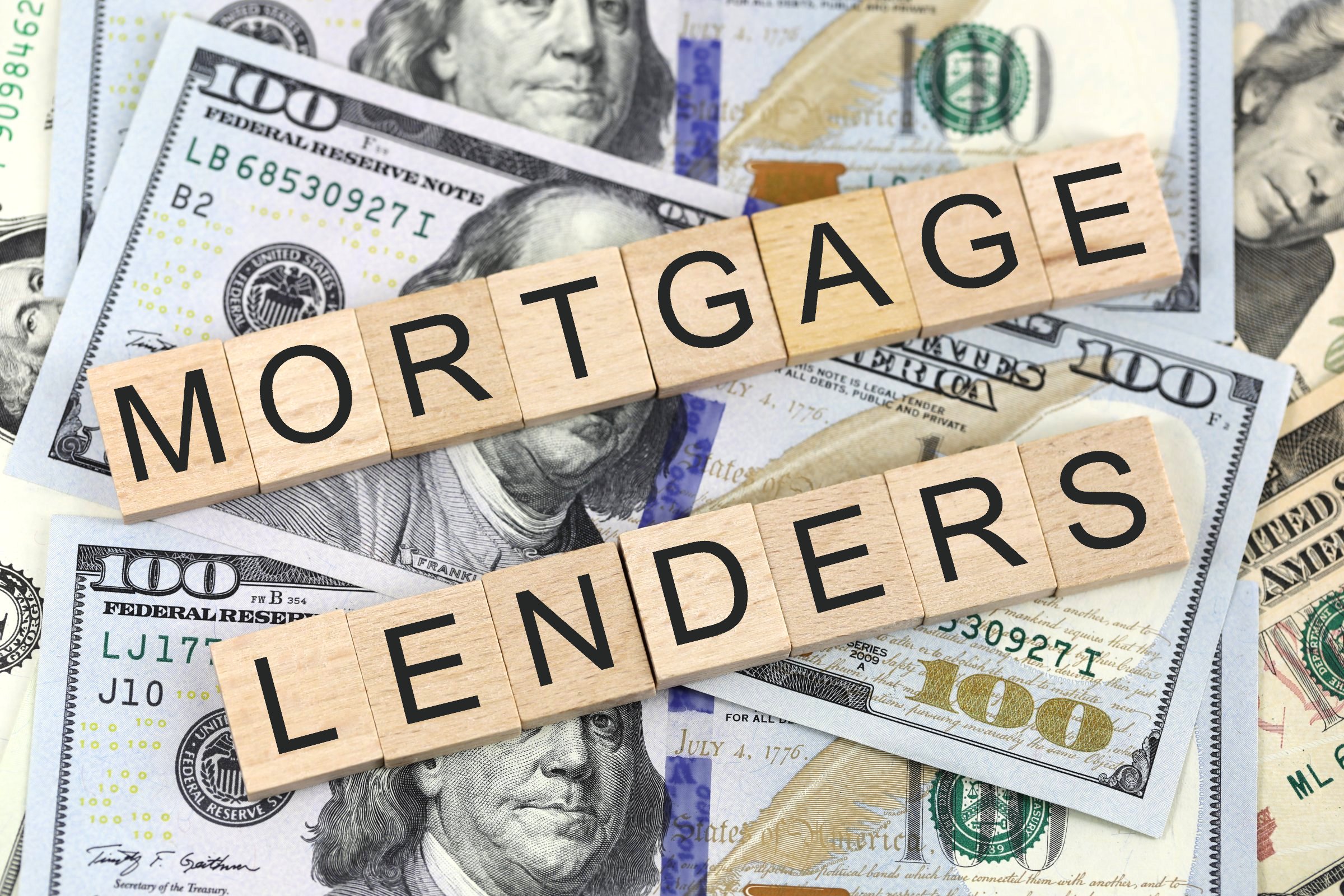What to look for during your first meeting with private mortgage lenders savannah ga
All About Mortgage Lending: Trick Insights for Homebuyers and Investors
Mortgage lending is a complicated landscape, providing various financing types tailored to varied debtor requirements. Understanding the subtleties of conventional, FHA, VA, and USDA lendings can substantially affect homebuyers and capitalists alike. Furthermore, credit history play a crucial role in safeguarding beneficial rates of interest. As the mortgage application procedure unravels, several vital aspects come into play, affecting both authorization and terms. What are the vital actions and techniques to navigate this intricate process effectively?
Comprehending Various Types of Mortgage Loans
Understanding the different kinds of mortgage loans is important for prospective homebuyers, as each choice caters to various financial scenarios and needs. Conventional fundings, typically offered by private lenders, require a higher credit rating and frequently include a deposit of at the very least 20%. On the other hand, FHA finances are government-backed and created for newbie purchasers, allowing reduced credit rating ratings and smaller sized deposits. VA finances, offered to professionals and active army members, provide favorable terms and no down payment requirement. In addition, USDA finances support rural buyers with low to moderate revenues, offering no deposit options. Fixed-rate home mortgages preserve consistent month-to-month repayments over the funding term, while adjustable-rate home mortgages begin with lower prices that can vary. By recognizing these distinctions, buyers can make educated decisions customized to their monetary situations and lasting goals. Picking the best mortgage type is a significant step in the home-buying procedure.
The Significance of Credit Rating in Mortgage Authorization
Credit history play a necessary function in the mortgage approval procedure, working as a vital sign of a consumer's creditworthiness. A higher credit report can lead to extra beneficial rates of interest, significantly impacting the total price of a mortgage. Understanding the basics of credit report and checking out methods to boost them can greatly benefit prospective homebuyers.

Credit Rating Essentials
A solid credit rating plays an important role in the mortgage approval procedure, affecting lenders' understandings of a customer's reliability. Credit history, usually ranging from 300 to 850, reflect an individual's creditworthiness based on their economic background, including repayment history, credit score application, length of credit scores history, types of charge account, and current questions. Lenders assess these ratings to assess the danger related to offering money. Generally, a greater credit report indicates reduced risk, resulting in a smoother approval process. Buyers and capitalists need to on a regular basis examine their credit scores reports for mistakes and take steps to enhance their scores, such as paying bills promptly and decreasing impressive financial obligations. A solid credit report is a vital asset in protecting positive home loan terms.
Effect On Passion Rates
Interest prices on home mortgages are substantially influenced by the borrower's credit scores score, which acts as an essential indicator of monetary integrity. Lenders assess credit rating to review the danger linked with prolonging a car loan. Private Mortgage Lenders Savannah GA. Higher credit report usually cause lower rate of interest, as they recommend that customers are extra most likely to settle their debts. Conversely, reduced credit report might result in greater prices, reflecting the raised danger regarded by lending institutions. This connection underscores the value of keeping a solid credit score account for prospective customers. Recognizing how credit history affect passion rates can empower property buyers and capitalists to make educated choices, possibly saving them significant amounts over the life of their mortgage

Improving Your Credit Report
Homebuyers keen on securing favorable mortgage terms need to identify the essential duty of credit rating in the authorization process. A greater credit scores rating frequently results in lower rates of interest, which can significantly decrease the total expense of a home funding. Lenders assess credit history to evaluate a candidate's economic integrity, influencing their choice to accept or deny a home mortgage application. To enhance their scores, prospective customers must focus on prompt costs repayments, lowering exceptional debts, and preventing brand-new credit score queries. Frequently evaluating credit history reports for errors can additionally aid preserve accuracy. By taking these actions, property buyers can boost their creditworthiness, inevitably boosting their possibilities of getting a mortgage with desirable problems.
Key Factors Influencing Rates Of Interest
How do various economic factors shape the landscape of home loan rate of interest rates? Several crucial elements play an important function in establishing these rates. The Check This Out Federal Reserve's financial policy significantly influences rate of interest prices; when the Fed raises or lowers benchmark rates, home mortgage rates usually comply with match. Furthermore, inflation patterns impact the buying power of consumers, leading lenders to readjust prices appropriately. Financial development indicators, such as employment prices and GDP development, likewise influence rates of interest; a durable economic climate commonly leads to higher rates due to increased demand for financings. In addition, the bond market functions as an essential standard; when bond yields rise, home loan rates have a tendency to enhance as well. Specific customer elements, including credit scores rating and debt-to-income proportion, can affect the certain rate provided. Understanding these characteristics helps buyers and capitalists make informed decisions in the home mortgage market
The Mortgage Application Process Explained
What steps are involved in protecting a home mortgage? The mortgage application procedure begins with the debtor celebration needed documentation, such as income statements, tax obligation returns, and credit rating. Next off, the customer picks a lender and sends an official application, supplying all needed information. The lending institution after that performs a credit check and examines the consumer's financial stability.Following this, the lending institution will certainly execute an appraisal of the building to determine its market price. When the residential property is evaluated, the lending institution examines the application, including the customer's financial history and the evaluation results, to choose whether to approve or refute the finance. If authorized, the customer receives a lending price quote detailing the terms and costs related to the mortgage.Finally, the consumer evaluations and signs the closing documents, formally protecting the mortgage. Recognizing this process is important for possible property owners as they navigate the complexities of home mortgage loaning.
Tips for First-Time Homebuyers
Novice property buyers encounter an unique collection of obstacles when going into the real estate market. Comprehending the different kinds of home mortgages readily available and successfully budgeting for their acquisition are crucial actions in the homebuying trip - Private Mortgage Lenders Savannah GA. By furnishing themselves with this understanding, they can make enlightened decisions that line up with their economic goals
Comprehending Home Mortgage Types
Navigating the globe of home mortgage kinds can be frightening for those going into the real estate market for the initial time. Understanding the different choices is essential for first-time property buyers. Fixed-rate home loans supply predictable regular monthly settlements, making budgeting less complex. Conversely, variable-rate mortgages (ARMs) commonly begin with reduced prices that can fluctuate in time, which might be enticing yet lugs risks. Government-backed fundings, such as FHA and VA finances, provide additional assistance for qualified customers, often needing reduced deposits. Furthermore, new buyers might discover traditional financings that stick to particular criteria. Each mortgage kind has one-of-a-kind advantages and disadvantages, so it is necessary for newbies to research study thoroughly and assess their lasting financial objectives prior see page to choosing.
Budgeting for Your Purchase
When beginning on the trip of homeownership, efficient budgeting is vital for possible purchasers to ensure economic stability throughout the procedure. Novice buyers should begin by reviewing their income and expenses, guaranteeing they allot funds for a down settlement, shutting costs, and relocating expenses. Developing a regular monthly budget that consists of home loan settlements, real estate tax, insurance coverage, and upkeep expenses is essential. Customers ought to additionally factor in possible fluctuations in rate of interest and market conditions. Producing an emergency fund can supply a safeguard for unanticipated costs. In addition, buyers might benefit from seeking advice from financial consultants or making use of online budgeting tools to obtain a clearer understanding of their financial circumstance. Careful preparation inevitably results in notified choices and a successful home purchase.
Financing Options for Real Estate Investors
What funding alternatives are available to actual estate capitalists wanting to broaden their profiles? Capitalists can discover numerous avenues. Conventional home mortgages continue to be a popular option, typically requiring a larger down repayment and great credit. Alternatively, investors may think about difficult money loans, which are temporary lendings protected by realty, offering fast accessibility to funding but at higher rate of interest rates.Another option is private financing, where financiers can obtain from pals or family, commonly with even more flexible terms. For those seeking to fund several residential properties, portfolio lendings may be appropriate, allowing several residential properties to be bundled under one mortgage.Additionally, actual estate crowdfunding platforms have actually emerged, making it possible for financiers to merge resources with others for home investments. Leveraging equity in existing properties with cash-out refinancing can give funds for new investments. Each alternative has its benefits and dangers, calling for mindful consideration based upon specific investor objectives.
Regularly Asked Questions
What Are the Normal Closing Prices Connected With a Home loan?
Closing prices generally consist of appraisal costs, title insurance policy, attorney fees, and source costs. These expenses generally range from 2% to 5% of the loan quantity, affecting the overall financial dedication for the buyer.
Exactly how Lengthy Does It Take to Close on a Mortgage?
The duration to close on a mortgage usually varies from 30 to 45 days, depending upon different variables, including lending institution efficiency, paperwork efficiency, and market problems, which can greatly affect the general timeline.

Can I Refinance My Mortgage Later On?
Yes, refinancing a mortgage later on is feasible. House owners usually seek re-financing to protect lower interest prices, lower month-to-month repayments, or access home equity. They need to think about involved costs and their financial scenario before continuing.
What Happens if I Miss a Home Mortgage Payment?
If a home mortgage payment is missed out on, the borrower may encounter late fees, prospective damages to their credit rating, and feasible repossession proceedings. Lenders commonly provide elegance durations, but constant missed out on payments investigate this site can cause serious consequences.
Are There Fines for Paying off My Mortgage Early?
Lots of lending institutions enforce prepayment charges for very early home mortgage payoff, potentially costing customers additional costs. Terms vary significantly among loan providers, so it is necessary for consumers to assess their mortgage agreements before making early payments.